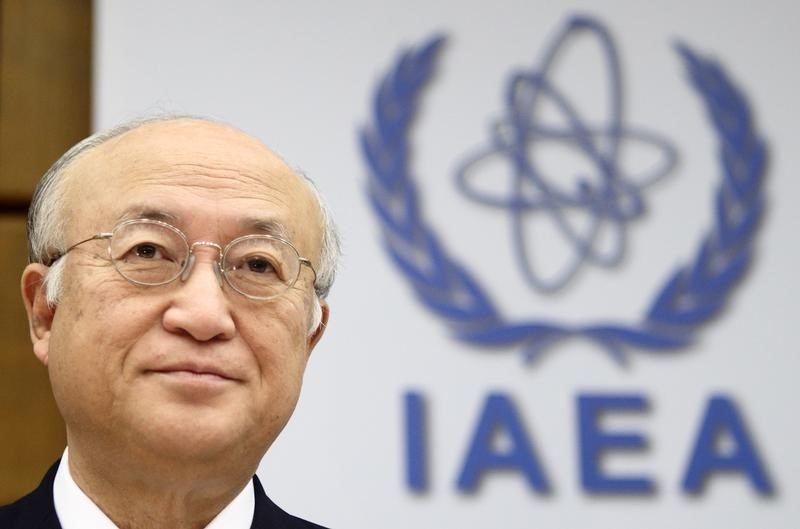VIENNA (Reuters) - The U.N. atomic agency will need more funds from member states to help pay for its monitoring of an extended interim nuclear deal between Iran and six world powers, it said on Wednesday.
Iran and the United States, France, Germany, Britain, China, and Russia failed to meet a Nov. 24 deadline for resolving a 12-year-old dispute over Iran's nuclear programme and gave themselves until the end of June for further negotiations.
As a result, a preliminary agreement reached late last year, under which Iran halted its most sensitive nuclear activity in exchange for limited sanctions easing, will remain in force. It was designed to buy time for the talks on a final settlement.
The International Atomic Energy Agency (IAEA) has seen its workload increase significantly under the preliminary accord, including its inspectors visiting Iran's uranium enrichment facilities of Natanz and Fordow daily, compared to about once a week before. The preliminary accord was initially due to run for six months from January but first extended in July and again this week.
The IAEA did not say how much more money it would need. It earlier this year asked for voluntary financial contributions of about 6.5 million euros to cover its extra Iran-related costs.
Because of the deal's political importance, diplomats have said there should be no problem raising the required funds.
"Taking into account the extension period, additional contributions will be required," senior IAEA official Serge Gas said in an email. "The agency will communicate with member states as soon as we identify our needs."
The U.N. agency's "verification effort in Iran has doubled" under the interim accord, IAEA Director General Yukiya Amano told the United Nations General Assembly this month.
Iran denies Western allegations it has been seeking to develop the capability to make nuclear weapons. But its refusal to scale back its uranium enrichment programme has drawn international sanctions hurting its oil-dependent economy.
Despite the missed deadline, Western officials said progress was made during the latest round of talks between Iran and the world powers in Vienna.
A senior European diplomat said there was "a clear commitment to capitalise on the momentum and get (a final agreement with Iran) done much earlier" than June 30.

"There was an absolute commitment to reach a deal but it was not enough to bridge the gaps," the diplomat said, speaking on condition of anonymity. "We will meet again in December. The format, place and level is yet to be decided."
(Reporting by Fredrik Dahl in Vienna; additional reporting by Robin Emmott in Brussels; Editing by Janet Lawrence)